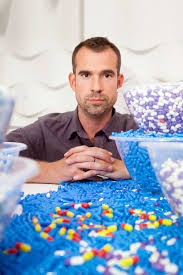
Watching Celtic is like going to chapel, but you want to be there and you’re a believer- even though, secretly, after getting humped 7-0 by Barcelona and facing another squad worth a quarter billion pounds, that’s won ten on the bounce, you don’t really expect miracles. Yet, you do, otherwise you’d be ffafing about watching Coronation Street. Belief isn’t optional, it’s part of the tapestry of football, against all the odds (or even 10/1) your team will win. More than that you can somehow help them win by jumping, screaming and acting like an eejit even though you’re not at the actual game. Seems daft. But without fans going absolutely nuts when Dembele scored that first goal after two and a bit minutes, dancing about like drunk man holding a coat hanger for a telly Ariel, without an audience there is no spectacle no money to pay the players on the pitch, no Celtic in Paradise. And what a game it was. A wet and windy night to say fuck you to those that delighted in telling you Celtic wouldn’t get a point or score a goal in this Champions League section (although you might have grown horns and believed them).
Manchester City equalised eight minutes after Dembele’s opener, in which the home team had dominated and looked far more likely to score a second, rather than concede. Kolarov’s shot was going nowhere but broke to Fernandinho in a crowded box and he tucked it away leaving Gordon, the recalled Celtic keeper, with no chance. But Celtic rolled with it and took the lead again. Of all the multimillion pound midfielders on show, the pick of the bunch in the first half, was Tom Rogic, and his weighted pass into the path of Kieran Tierney, whose deflected shot came off Raheem Stirling, gave Celtic the lead again and the stadium was rocking like the Tower of Babel. Dembele was involved in the Manchester City equaliser. After some great hold up play, his pass on the half-way line to Scott Brown was short, and a pass later Stirling was through on the Celtic goal, keeping his cool and wrong footing both Tierney and Gordon to slot the ball in the corner of the net. Celtic were on the back foot and it was good to hear the half-time whistle.
The second-half started much as the first, with an early Celtic goal. Nir Bitton fed Tierney who launched it into the City box. Dembele brought it down with his knee, and took enough time to put another ten million on his valuation, by flipping it over his head and wrong footing Kolarov, Claudio Bravo and the home and away support by somehow putting it to the keeper’s right and scoring. You hadn’t heard such a roar since the moon landing. If there was any justice in the world, the game should have finished them. But we still had another 40 minutes to play, in which Nolitio scored a City equaliser. It’s not often Aguerro is outgunned by an opposition striker. Watch this space.






